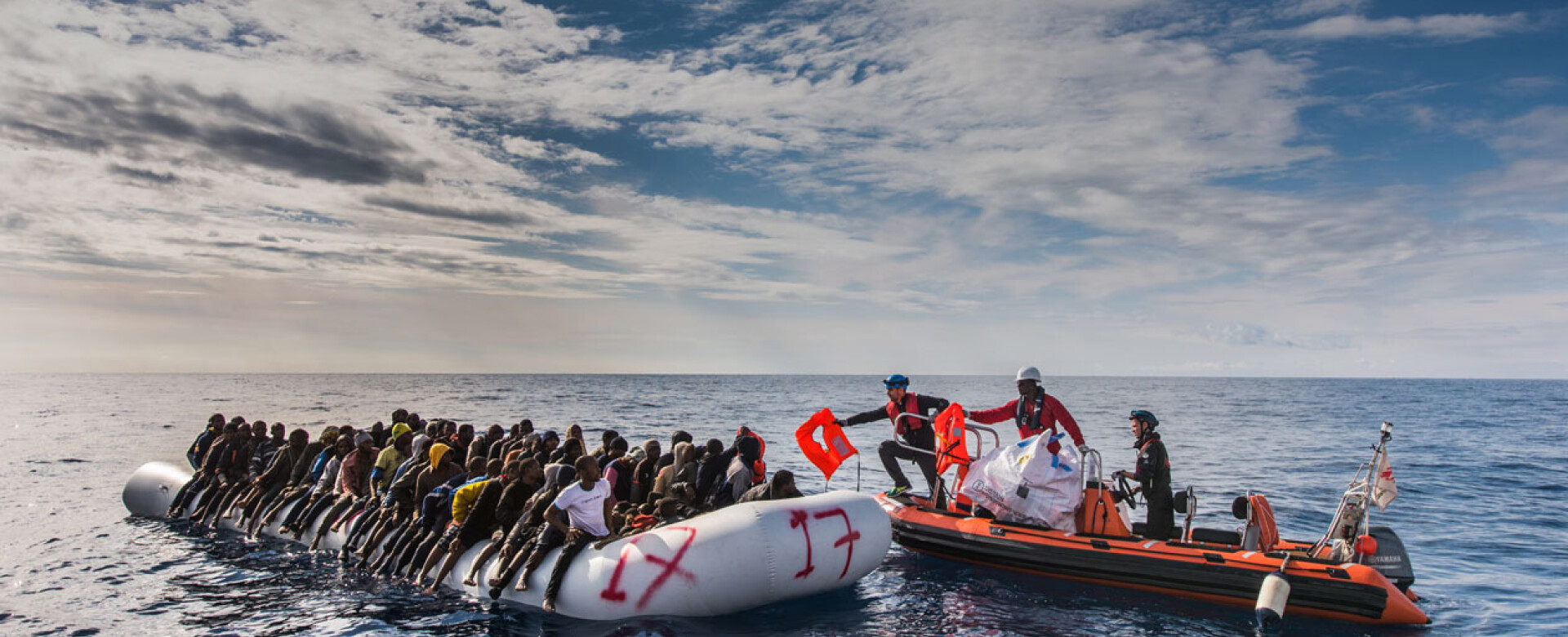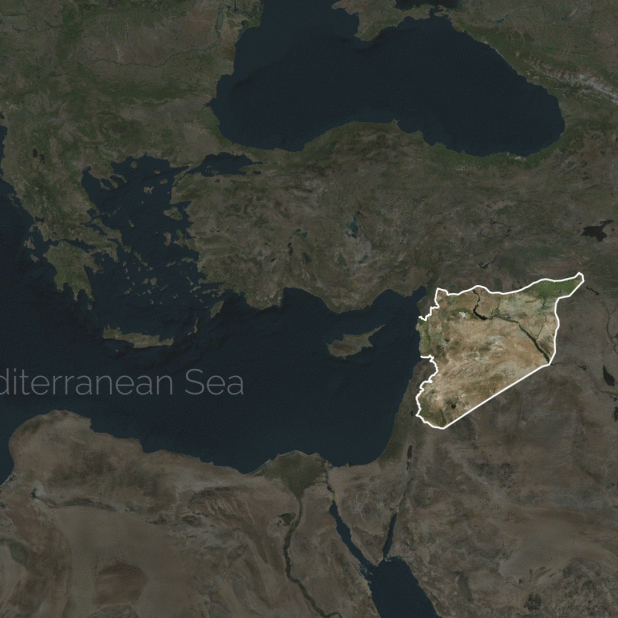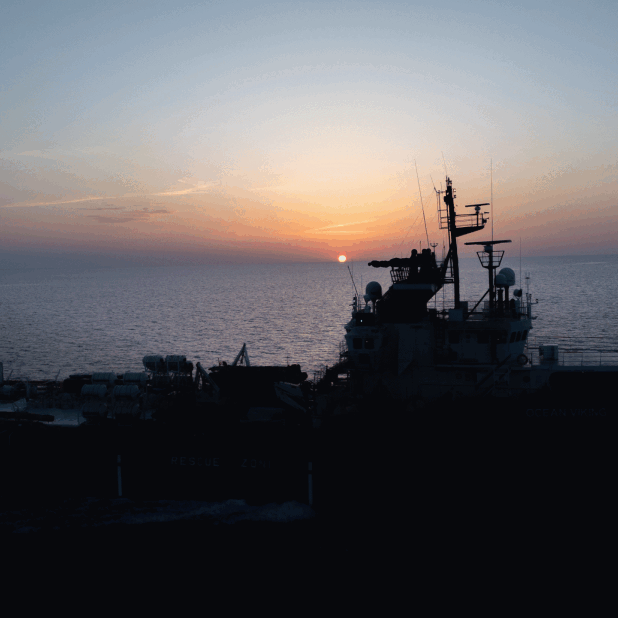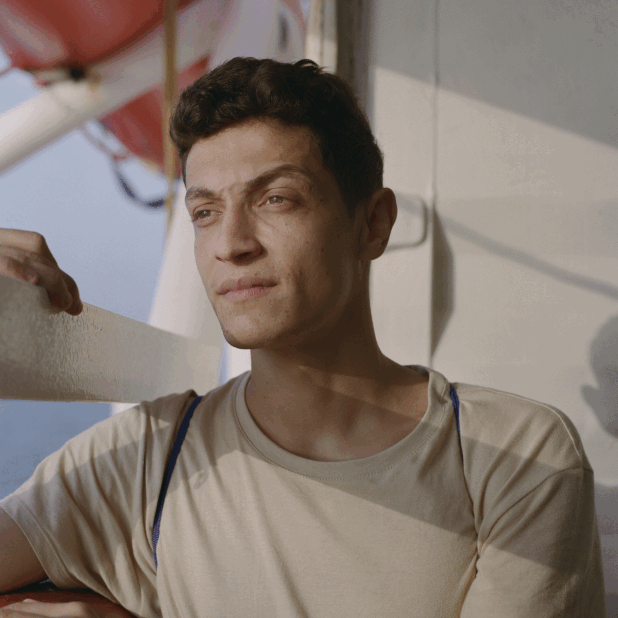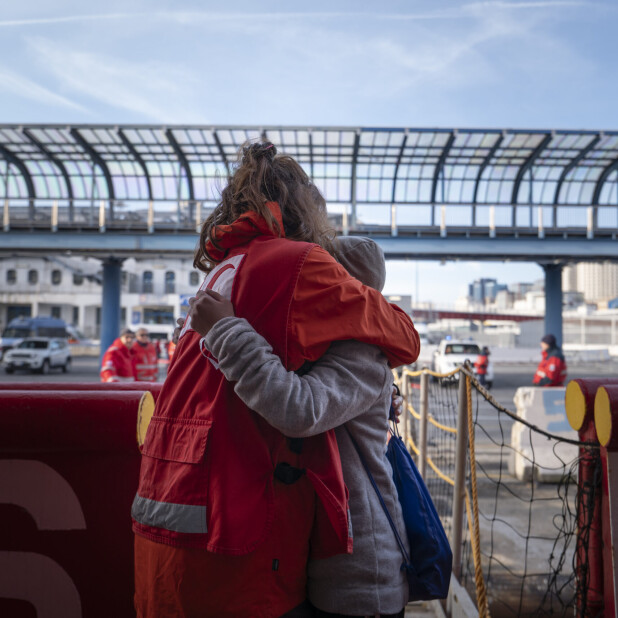
On April 18, 2015, a 27-meter-long fishing boat set out from near Gasr Garabulli in western Libya. After several hours of navigation, the boat crashed into a Portuguese container ship that had responded to its distress call. On board the rickety wooden vessel were up to 1,100 people from more than 20 countries. Only 28 people survived. The boat was then exhibited at the Venice Biennale in 2019, the most prominent art event in the world, as a powerful reminder of the tragedy.
Since 2016, when the International Organization for Migrationbegan keeping track of deaths in the Mediterranean, 31,855* people have died. This number is estimated to be significantly higher than reported. UNICEF reports that at least 3,500 children have died in the last decade, saying, “This is the equivalent of one child losing their life every day for a decade.” Since 2016, we’ve saved more than 10,000 children: 80% were traveling alone, and 650 were under the age of five.
“In their June 2017 report Death by Rescue, researchers Charles Heller and Lorenzo Pezzani claim that the lack of a proper search and rescue operation off the coast of Libya put lives in peril – and was a crucial factor in determining the fate of the migrant boat,” reported BBC at the time. As Heller and Pezzani wrote, “The policy of retreat from state-led Search and Rescue (SAR) operations shifted the burden of extremely dangerous search and rescue operations onto large merchant ships, which are ill-fitted to conduct them. In this way, EU agencies and policymakers knowingly created the conditions that led to massive loss of life in the April shipwrecks.”
SOS MEDITERRANEE was founded in 2015 for exactly this reason: to save lives at sea in the face of authorities’ indifference. Yet a decade later, nothing has changed. In December 2024, an 11-year-old girl from Sierra Leone was the sole survivor of a shipwreck that killed more than 40 people after their small metal boat left from Sfax, Tunisia.
Every single day people risk their lives crossing the Mediterranean. For most, boarding an unseaworthy vessel comes after months and even years of unimaginable hardship—traversing deserts without food or water, suffering violence, exploitation, and imprisonment, losing their freedom, leaving behind family and friends. No one takes lightly the decision to cross the ocean; this is people’s last resort.
For the last decade, SOS MEDITERRANEE has operated on a simple principle: no one should be left to die at sea. Ten years after a tragic loss of life that could have been prevented, we hold the victims of the 18 April 2015 shipwreck in our thoughts.
*Figure as of 14 April 2015
